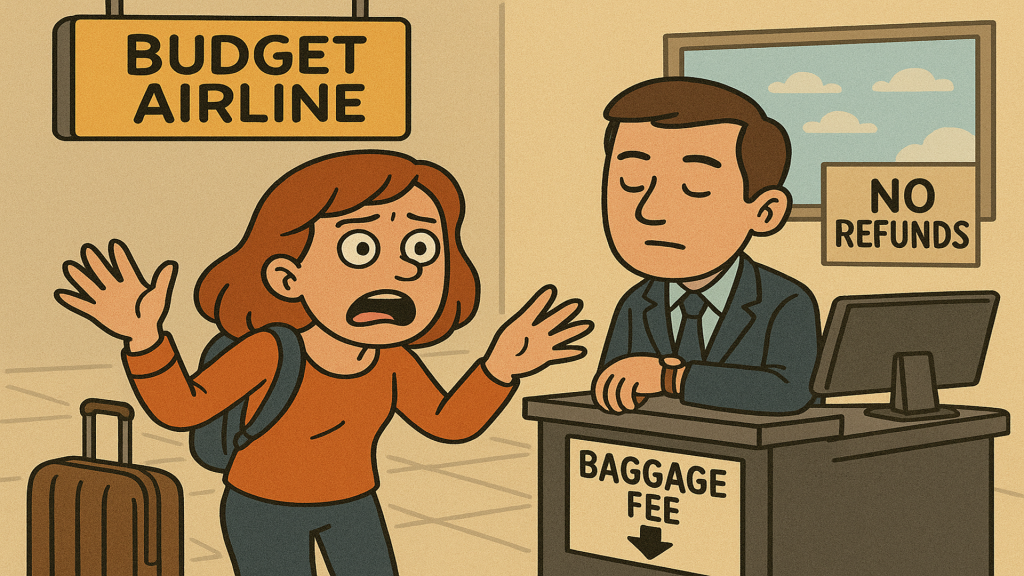
That $99 Spirit Airlines fare grabs your attention. But once you add a carry-on, pick a seat, print a boarding pass, and pay all the extras, you often spend more than you would for the all-in fare at United, for instance. You are packed in with no legroom, nickel-and-dimed the entire way, and left stranded if you need support.
Now picture that same approach in pharmacy benefits management. What budget airlines can teach us about PBMs is that low upfront costs don’t guarantee value unless transparency and accountability are built into the model.
Non-fiduciary PBMs hook employers with what looks like a low admin fee, such as $4.50 or $6.95 PMPM. Just like with the airlines, the real cost is buried in the fine print: spread pricing, retained rebates, restricted audit rights, and poor clinical oversight. What seemed like a deal ends up costing far more once everything is tallied.
Spirit adds more seats to shrink legroom and boost margins. Similarly, non-fiduciary PBMs pad their formularies with high-rebate drugs to increase their revenue, not because these medications work better or cost less for patients. The result is poor patient outcomes and higher total costs. When you ask for transparency or try to audit where the dollars go, you hit a wall.
Plan sponsors pay the PBM twice: once for the actual cost of the drugs and again as a separate fee to manage the pharmacy benefit. At TransparentRx, our management fee (∽ $14.95 PMPM) is the full fare. It covers everything, including prior authorizations, appeals, utilization management, and cost-containment programs that other PBMs often carve out and mark up. These services are not optional; they impact access, adherence, and total cost of care. We do not upcharge for them or hide them in separate agreements.
There are no hidden revenue streams or backdoor profits. Our formularies are built around clinical value and the lowest net cost, not the size of a rebate check. Every dollar saved goes back to the plan sponsor. We put that in writing, under a fiduciary standard.
Low-cost marketing does not mean low total cost. Whether it is flying or pharmacy benefits, if the price looks too good to be true, check the cargo hold. There is almost always something hiding in there.
Elevate your expertise in pharmacy benefits management with the Certified Pharmacy Benefits Specialist® (CPBS) program, sponsored by the UNC-Chapel Hill Eshelman School of Pharmacy. Whether you’re an HR leader, finance executive, consultant, or pharmacist, this certification provides the in-depth knowledge and strategic insight needed to manage pharmacy benefits with confidence and cost efficiency. Gain up to twenty continuing education credits, enhance your career prospects, and help your organization take control of pharmacy spend. Register today to join a growing network of professionals shaping the future of pharmacy benefits management. Learn more at the Pharmacy Benefit Institute of America.